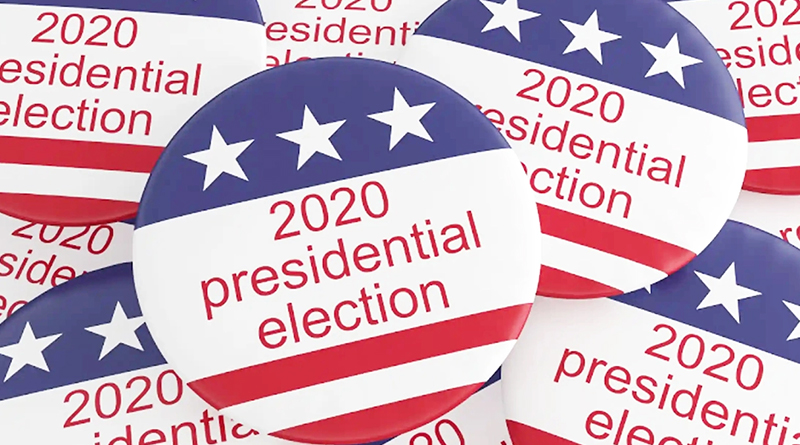The future course of America — and the world — will be determined by past actions of the 46th US president
Let Us Give the Donald His Due
Many books on Donald Trump’s presidency in 2016-20 will lambast him for appalling misbehaviour, destroying political standards and institutions, and endangering liberal democracy. Others will laud him for shifting foreign policy on China, and for transforming the Republican Party to represent an unrecognised, but important, section of voters — Whites without college degrees — called ‘the deplorables’ by 2016 Democrat presidential candidate Hillary Clinton.
What were his two greatest achievements and failings? His greatest achievement was his blunt recognition of China as the new geopolitical threat of the 21st century. This unceremoniously overturned earlier fond notions that bringing China into the global economic fold would gradually push it towards democratic liberalism. Trump’s new vision has convinced former optimists in the Democratic Party, and indeed in countries across the world. It is a turning point in history, no less.
His vision was not cogent. He started by irrationally blasting China for its large trade surplus with the US and patent theft. He tried to fix that by negotiating a bilateral trade deal with China that flopped, with China failing in its import commitments. However, his criticisms soon made a major leap from Chinese trade policies to its dangerous new military and geopolitical ambitions.
In 2018, Vice-President Michael Pence delivered a remarkable speech accusing China of trying to be the world’s new hegemon, of violation of international law whenever inclined, and of systemic military theft and spying that include incorporation of spyware in Chinese equipment. In effect, this declared the start of a new Cold War. Trump followed up by banning Chinese purchases of hi-tech US companies, or even equipment (dealing a body blow to Semiconductor Manufacturing International Corporation (SMIC), China’s top chipmaker). He placed sanctions on top Chinese companies, banning Huawei from setting up a 5G network in the US, and banned apps like TikTok. Trump abandoned the missile control deal with Russia largely because China was not covered by it, and was now the key new threat.
However, a rational Cold War strategy entailed strong partnerships with many allies. Instead, Trump quarrelled and bullied Nato, the European Union (EU), Japan and even India on trade matters. He broke international treaties like the Trans-Pacific Partnership (TPP) and Paris Climate Agreement. He pulled out of the World Health Organisation (WHO) and neutered the World Trade Organisation (WTO).
If Biden wins, he will follow Trump’s Cold War lead, but rebuild shattered alliances and international agreements, to the delight of Europe and Japan. India, facing border incursions from a newly aggressive China, must thank Trump for the new global front to check Beijing.
Trump’s second major achievement was economic. He slashed taxes, helped step up economic growth, reduce poverty and reduce unemployment to the lowest level for half-a-century. This rewarded his business and ‘deplorable’ supporters. Some economists point out that growth under Trump was no higher than under Barack Obama. But he took the economy to new heights and checked Chinese rivals.
His sweeping deregulation of controls aided economic growth. However, of his 225 executive orders for deregulation, as many as 70 related to the environment. His attempt to help Big Coal failed. But he expanded fracking fast, making the US the world’s biggest oil producer. Some of his new rules were terrible for the environment, and will be reversed by the next Democratic administration.
Trump’s claim that his protectionism would create additional jobs, especially in steel and aluminium, is dubious. Critics sneer at Trump’s false claim that faster growth from tax cuts would spur growth enough to avoid raising the fiscal deficit. In fact, the fiscal deficit soared. However, exactly the same thing happened in Ronald Reagan’s supply-side gambit. Yet, he came to be viewed as probably being the best Republican president ever.
On the debit side, Trump has coarsened politics through the espousal of racism, anti-immigrant hate, White supremacism, crudity, fake news and alternative facts. He has further divided an already divided country through extreme partisanship, abandoning all pretence of high principle, using any and every possible tactic to pack independent institutions — the executive, the judiciary, criminal investigations, the diplomatic service and environmental agencies — with sycophants and camp-followers. This has eroded the independence of these institutions, denting the cause of liberal democracy. It has also encouraged Republican governors and sheriffs to try to rig elections by ruses like changing rules on postal ballots (used disproportionately by Democrats) and reducing the access of pro-Democrat zones to poll stations.
Since Trump’s crude partisanship has yielded short-term dividends, this has provoked demands from Democrats to similarly rig institutions in their own favour. If elected, Biden will probably expand the Supreme Court, creating four or five new judges who support Democratic policies. He may create two or three new states — the District of Columbia (DC), Puerto Rico and the US Virgin Islands — that traditionally favour Democrats, giving them six extra seats in the Senate and tilting the balance there permanently.
This will enrage Republicans, who will swear to rig the system in their favour when their time comes. The old consensus on fair play has been abandoned for dubious dirty tricks across the board, puncturing liberal democratic fundamentals. This may be Trump’s most evil legacy.


